14 Financial Experts Share Their Advice For "Life After Debt"
So you have paid off a massive debt.
Whether it is a car loan, mortgage or student loan, there is no denying that paying off debt is a big deal.
So first of all, congratulations are in order.
But even though you have paid off debt, does not mean the bill collector is out of your life yet.
I recently learned this the hard way.
If you didn’t check out the video above, let me tell you a quick story.
Back in November 2017 I paid off my car.
Finally! After almost three years of a massive car payment and $20,000 in negative equity, the car payment and the bill collector problems were gone, or so I thought.
Only to find out six months later, I owed the bank more money- not from the car but from some savings account they opened up and was now at a negative balance.
I was shocked, baffled and most of all angry.
I had managed to get the car out of my life, but this pesky lender kept haunting me even though the car had been paid off and gone for months.
To learn what to do for the next loan I pay off, and the future of my money,
I decided to go to the pros.
I asked successful personal finance bloggers, podcasters and authors one common question:
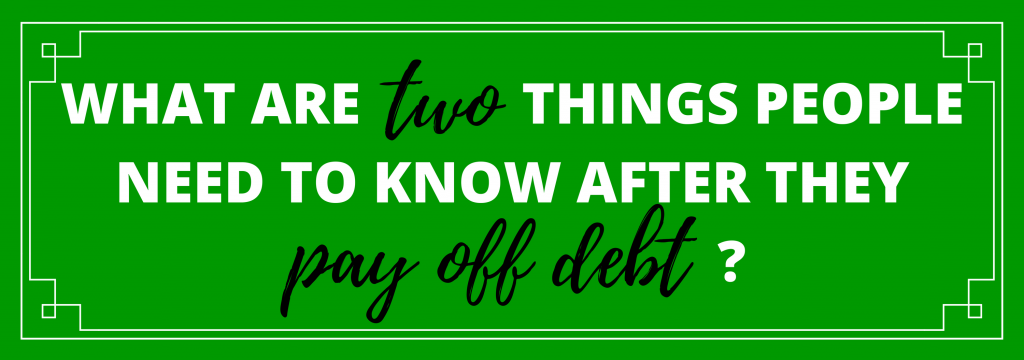
Let me tell you, the advice I received was nothing short of amazing.
Because of the amount of information, I organized it by category:
- Saving/ Investing
- Lifestyle
- Credit
Also, we have had the pleasure of welcoming many of the experts below onto our podcast- see a list of episodes here
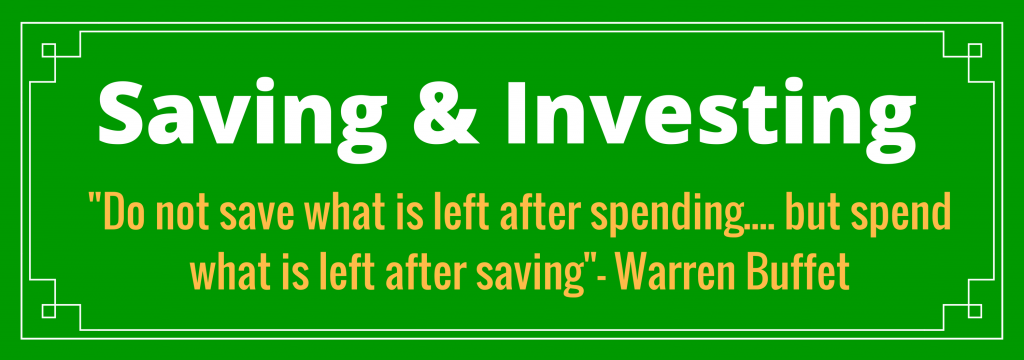
JMoney from Budgets Are Sexy
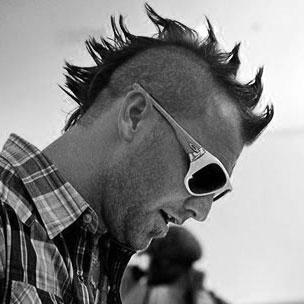
JMoney is the founder of the personal finance blog Budgets Are $exy. After buying his home on a whim, he started budgeting his money and tracking his net worth- which is now over $850,000.
A decade after starting his blog, he now spends his days blogging full time, hanging out with his young boys and drinking beer (probably not all at the same time, but I could be wrong).
“Being good with your money is all about *awareness* to me, so my answers to 99% of financial questions are to TRACK YOUR NET WORTH! 🙂
It’s one of the best ways to not only wrap your head around where all your money is on a monthly basis, but also help motivate you to keep working on things as every good move you make gets reflected in it whether you’re paying off debts or saving more/investing/etc.”
Kevin from Financial Panther

Spending his days as a lawyer and blogging by night, Kevin paid off $87,000 worth of student loans in two years.
He did this by living modestly on his attorney salary and took his own advice by not falling into lifestyle inflation. Kevin is also known as an “extreme side- hustler” and shares his stories on his blog, Financial Panther.
“You put in all this hard work to crush your debt – keep using that money to do something that will help you. Invest it, save it, do something that helps grow your wealth.
Second, think about what it is you really want to do and go chase that dream. Debt acts as an anchor, but once you have that anchor off, the world can really open up. It’s a big world out there, so make sure you keep your eyes open.”
Philip Taylor from PT Money

Philip is a true inspiration. Going from finance ignorant to creating one of the best financial conferences that thousands of PF nerds look forward to, FinCon.
His blog PT Money has over 200,000 views a month where his motivation is to teach others how to pay off debt and save money to be able to achieve their best life.
ESI from ESI Money

Mr. ESI from ESI Money is a 50-something blogger who lives in a mountain state with his family. Coming from humble beginnings with a single mom, Mr. ESI now owns Rockstar Finance, basically the on-line local watering hole for anyone who loves to talk about earning, saving or investing their money.
“Make a plan for the excess money you’re about to have.
Consider your life goals and be sure the cash goes towards those things, not simply disappears into a vast amount of increased spending.
When we paid off our mortgage, we took that payment and simply made a payment for the same amount, but this time to ourselves! It really super-charged our saving/investing and helped us rapidly build wealth.”
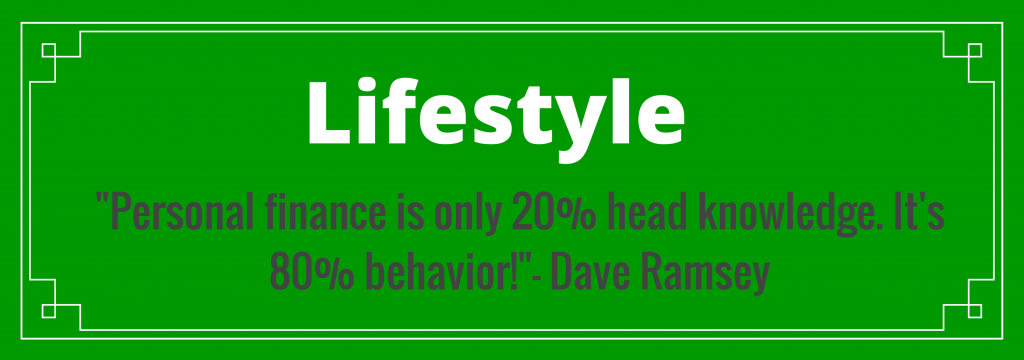
JD Roth from Get Rich Slowly

JD Roth is the mastermind behind the website, Get Rich Slowly.
After detailing how he tackled his own mountain of debt and becoming debt-free in 2007, JD is a regular guy that has found a passion to helping others learn how to master their money.
He has helped thousands learn how to reach their financial goals to live their best life.
“Hm. Interesting question. I think there’s really only ONE thing they need to know. You pay off debt by creating a gap between your earning and spending. You build wealth the same way.”
Sam Dogen from Financial Samurai

As a financial veteran with an MBA from Cal Berkeley, Financial Samurai shares the latest tools he is using to track his investments after sharing how his net worth was affected by the 2008 financial crisis.
Being featured in publications such as the Wall Street Journal Online and Forbes, his unofficial personal financial advice is one that can be considered to help your situation.
“You lose your motivation when you have no debt, life becomes much easier.”
Steve from Think Save Retire
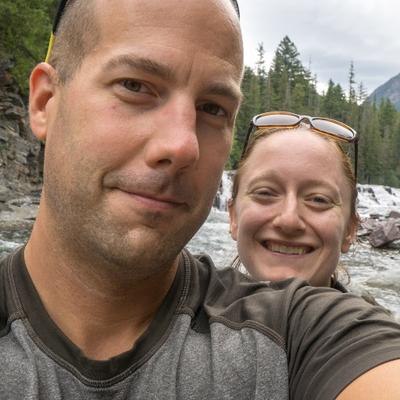
Steve is a 30- something early retiree who lives full time in an Airstream Classic travel trailer with his wife and dogs.
His blog, ThinkSaveRetire is a resource chalk-full of information on saving, investing and general life on the go.
We had the privilege of having him on the Chain of Wealth podcast where he talks all about early retirement and what he did to get there.
“Paying off debt is an amazing achievement, but that doesn’t mean your spending discipline can suddenly stop.
If you relax your discipline, you might find yourself back in debt. Reward yourself for the achievement, but remember that your work isn’t yet done, which leads me to my second point.Don’t change a thing!
If you scrimped and sacrificed to get yourself out to debt, consider making that your new lifestyle and *save the cash* that was going to pay off your debt. You’re building your wealth. Becoming truly affluent.
Take the discipline and sacrifice that enabled you to pay off debt and use that same motivation to begin moving in the other direction: Building wealth rather than spending more wealth than you have.”
Billy B from Wealth Well Done

After finishing up a decade long prison sentence, Billy has completely turned his life around. You can hear the whole story here.
Refusing to punish himself for a lifetime, Billy has created a net worth of over $250,000 in a short time since his prison release by creating his own business and he documents all of his progress and thoughts on his blog, Wealth Well Done.
“I think one of the most exciting things about becoming debt free is realizing that no person or entity is in control of you or your future anymore.
You don’t owe anyone anything.
You don’t have to do what other people want you to do. For the first time in many people’s lives, being debt free means they can finally decide what they want to accomplish in life without having to ask permission from the forces controlling them.
Brian from Debt Discipline

Brian had a wake up call when he ended up in over $100,000 in debt and all of his credit cards were maxed out.
He realized that his family was living way above their means and decided it was time to become debt free- and he did, in just 50 months.
In his blog, Debt Discipline, he shares stories of his debt payoff and lessons he has learned along the way.
“Be ready because you might experience a little bit of a letdown after the big goal is gone.”
Scott from I Dream of Fire

Scott has recently released his identity as he has started his mini-retirement to be with family and find what he is really passionate about.
After realizing he needs to be more mindful of his saving initiates, he decided to document his finances on his blog, I Dream of FIRE.
“If people are paying off consumer debt, they need to be vigilant about their spending so old habits don’t creep back up and cause them to backslide.
Keep forward momentum going by earmarking that money going for debt repayment months in advance toward something that will build wealth.
Know where that extra money will go before it shows up in your checking account and automate it if possible.
Second, if you’re in a relationship, make sure both partners are on the same page in regard to future debt. Talk about your goals and what life after debt looks like often so you can both share in the vision of the future and its success.”
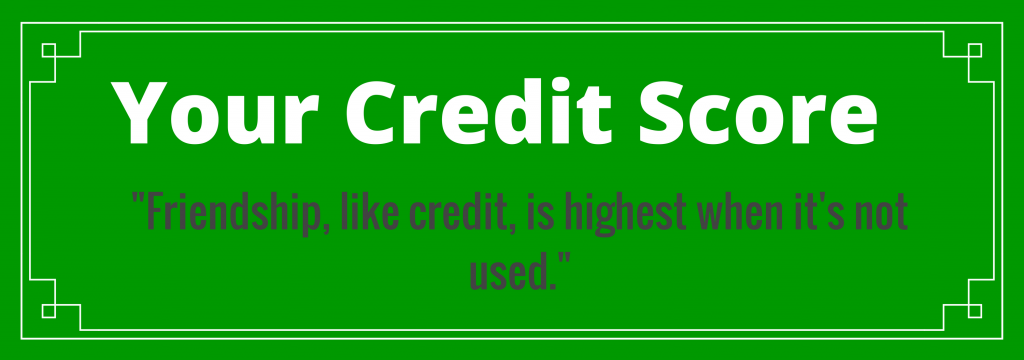
Melanie Lockert from Dear Debt
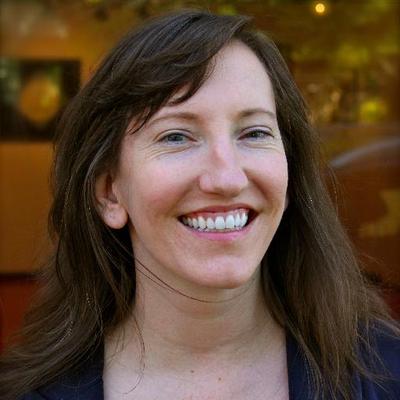
Melanie is the creator of the blog, Dear Debt. Here, she encourages people to write break-up letters with their debt. An empowering and motivating thing for others who are also in the payoff phase of their debt.
She is also the founder of the Lola Retreat. A function put on every year where woman gather from around the country to share financial wins, goals and how to better invest their money. There is no doubt that Melanie is an expert when it comes to money, both financially and emotionally. Listen to her speak about debt and suicide on one of our first podcast interviews!
“When I paid off my student loans I kept my forms stating that my balance was zero and the accounts were paid off. Also, after a few months, check your credit report at AnnualCreditReport.com to make sure it says those accounts are paid off.”
Zina Kumok from ConsciousCoins

Zina is a young 20- something who decided to get ahead and pay off her student loans in a little amount of time and documented it all on her blog, Conscious coins.
She devised a plan and paid back $28,000 in 3 years while working a regular salaried job.
After having such success with her own student loan, she developed a course to help other people knock out their loans as well. Listen to what she did here.
“Always check your credit report to make sure the account is reported as closed. That’s the best way to make sure the lender is reporting the debt correctly to credit bureaus.”
Jordan Goodman from Master Your Debt
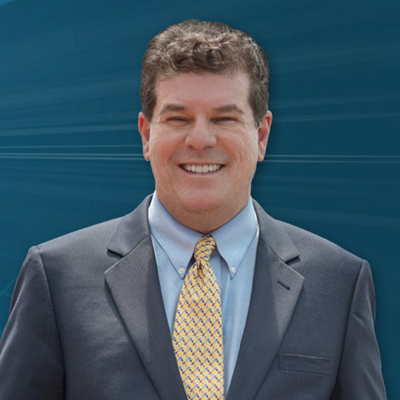
As the author or co-author of 13 best selling books, Jordan has earned the nickname of America’s Money Answers Man.
He is able to help give advice on topics ranging from paying off student loans to building credit and investing in 401K’s.
“You have to check your credit report with all three bureaus–Equifax, Experian and Trans Union, to make sure they have marked those credit lines as closed and not just that they have a zero balance.
If the bureaus still consider them open that adds to your potential debt, or what is called debt capacity, which lowers your credit score.
Check your credit score such as your FICO score to make sure it hasn’t dropped after you pay off debt and close accounts.
If you have had a good payment history on a card account and then close it, it could hurt your score if you lose that good credit history.”
Damion Lupo from Blackbelt Wealth Academy

Damion is an author and business-owner. He has experienced extreme highs and extreme lows in the business world and is happy to offer up any advice he can to anyone who is willing to learn.
You can hear his whole conversation with us, here.
“That credit bureaus will keep things on your report in error and you have to be diligent, so having a monitoring service like LegalShield’s Identity Theft (which includes credit monitoring).
Credit bureaus are required by federal law to fix or eliminate any error within 30 days of written notice or to tell you why they’re keeping it. Penalties to them if they don’t.
So any changes or demands to ALL 3 credit bureaus should be done with a certified letter, green receipt attached with signature required.
Also, insist the lender send a written letter to you confirming the account is paid in full and any release needed to offset a recorded lien.”
Wow! With all of this great advice, I honestly wish I would have asked this question months ago, but now that I know all of this awesome information, I will definitely be using it from now on.
What about you? Do you have any other great tips to remember when paying off debt? Leave your thoughts in the comment section below.
